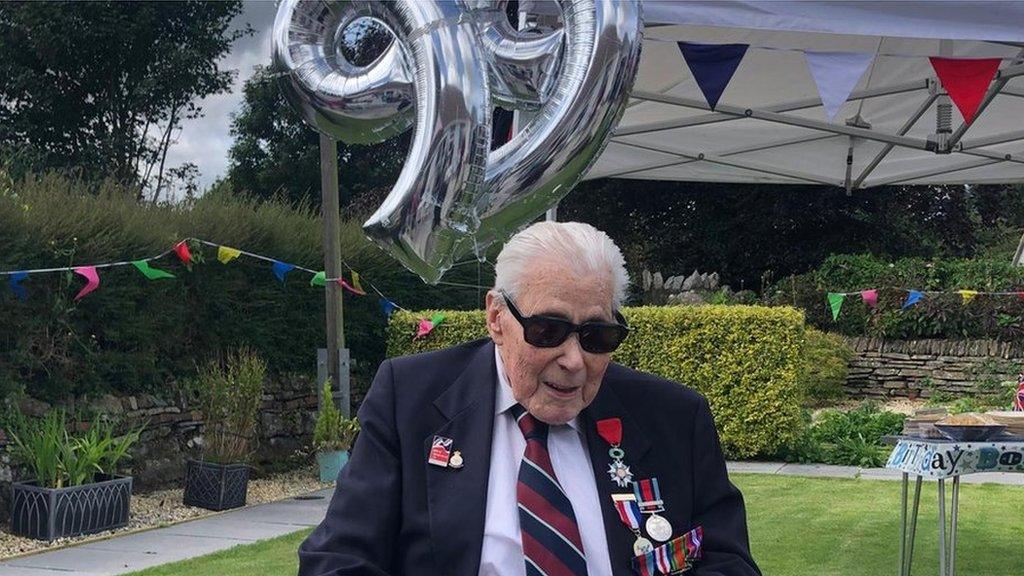American woman thanks Britons who helped her father in WW2
- Published
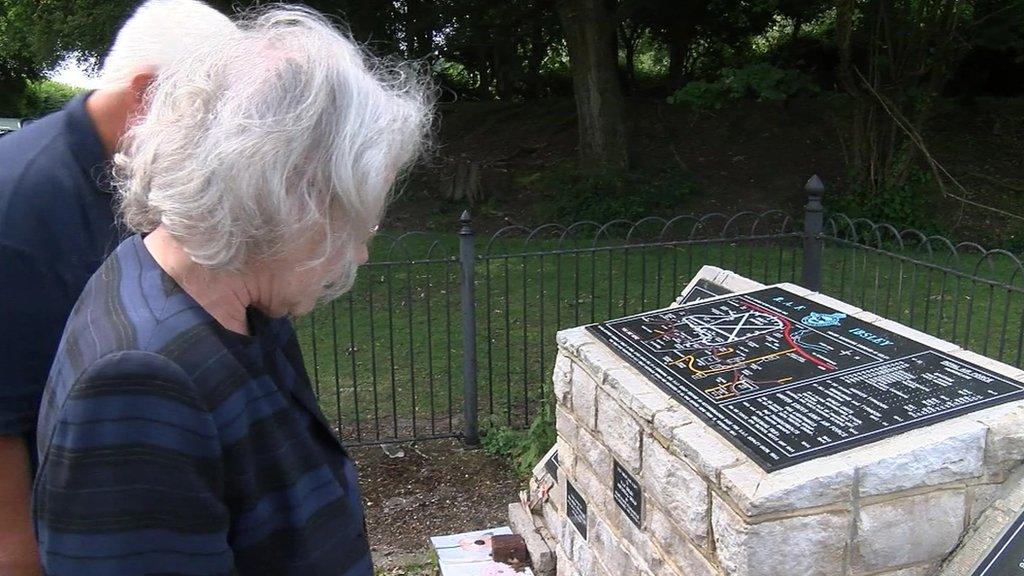
Patricia Ashley said her father was "incredibly indebted and humbled" by the help he recieved
An American woman has made an emotional pilgrimage to the New Forest to thank those who helped her father survive after his plane was shot down during World War Two.
Colonel William Jones from the US Army Air Force was based in RAF Stoney Cross in 1944 when he flew Lockheed P-38 Lightning fighters.
In May 1944, his plane was shot down over German-occupied France and he managed to escape but was left badly injured.
Patricia Ashley has travelled to England from California to visit her father's wartime base and to show gratitude to the people who helped save his life.
"My father was a career military office in what became United States Air Force", Ms Ashley said. "And all his life he couldn't tell us how he escaped."
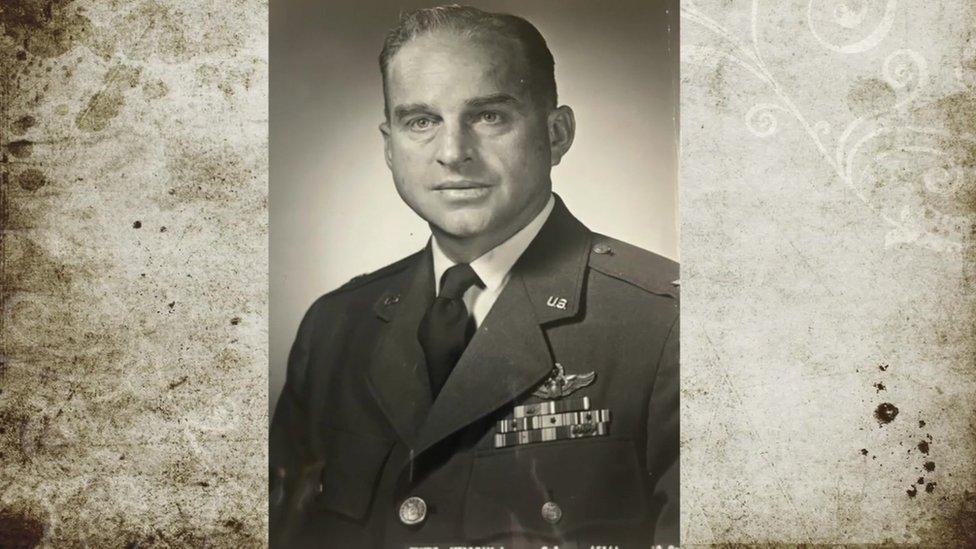
Colonel Jones made a miraculous escape when his plane was shot down German-occupied France in 1944
She said that like most of the pilots in his fighter group, Colonel Jones was expecting to fly single engine fighters at Stoney Cross.
"You can imagine their surprise when they arrived to see a line up of twin engine P-38 Lightnings," she said.
Colonel Jones was shot down over Northern France in May 1944, which left him with bad injuries and damaged eyesight.
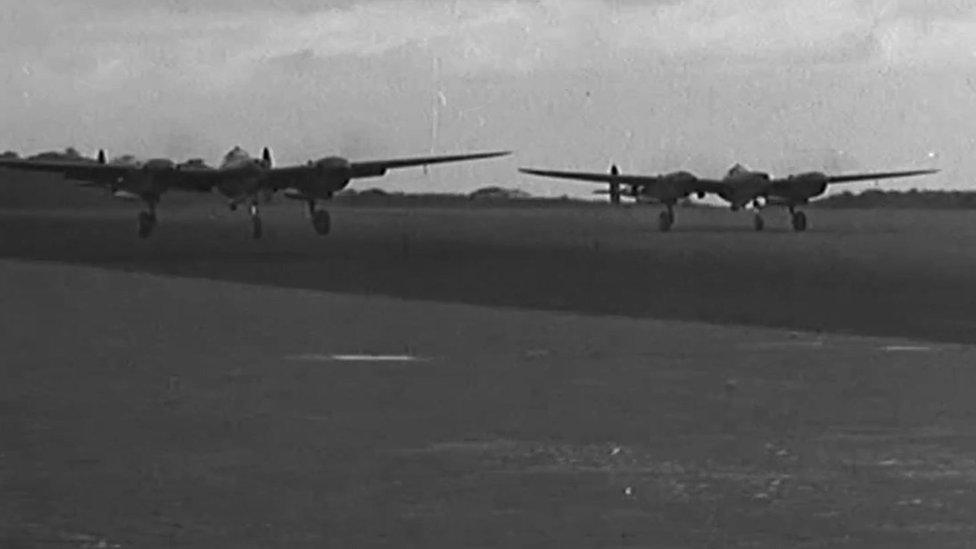
Colonel Jones expected to fly single engine fighters but instead ended up operating the twin engine P-38 Lightning
He was nearly caught by German troops, but managed to escape, and shortly before his death in 1977, he recorded his memories of the event.
"I was drooped over the rear of the airplane and it was beating me to death", Colonel Jones can be heard saying.
"My eyes felt like they were being pulled out of my head and I lost consciousness."
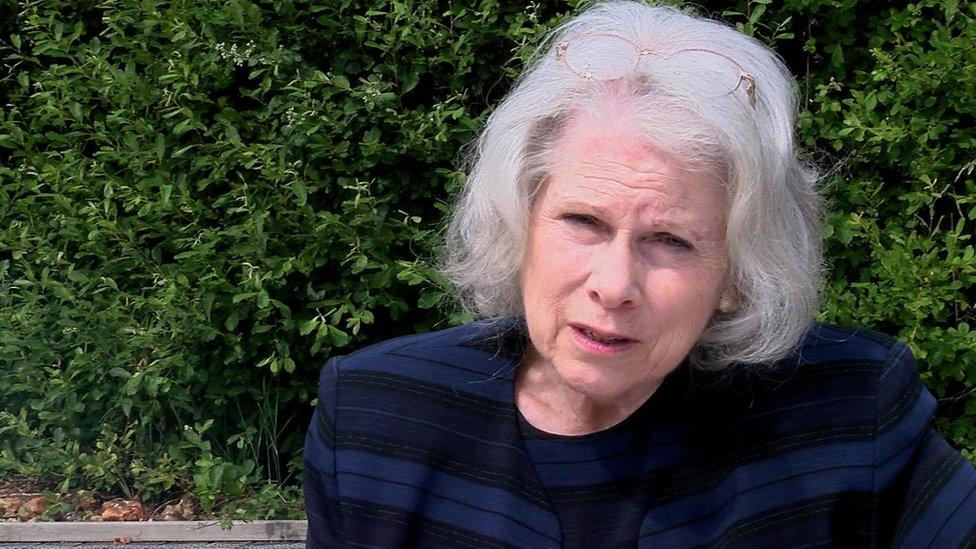
Patricia Ashley has been on an emotional pilgrimage to Stoney Cross
Ms Ashley said her father escaped to England two months after having been hidden, sheltered, and given medical treatment, food and clothes.
Upon arrival it was thought he was a German spy, but a pilot he had trained could confirm his identity and Colonel Jones was able to returned to the USA.
She describes his survival as "truly amazing" and said many of those who helped him did not make it, "or they suffered greatly as a result".
"He was surrounded by heroes and heroines from Brittany farmers, chateau owners, to many maquis groups along with French and British soldiers and Special Service personnel," she said.
"After returning to England, Dad was repatriated to the US as his injuries meant he was not fit to fly, and he needed further medical treatment.
"He wanted everyone to know that he was incredibly indebted and humbled by the British sacrifices that they made. So I've been on a mission to thank the many people who helped."

Follow BBC South on Facebook, external, Twitter, external, or Instagram, external. Send your story ideas to south.newsonline@bbc.co.uk, external.
Related topics
- Published28 July 2023
